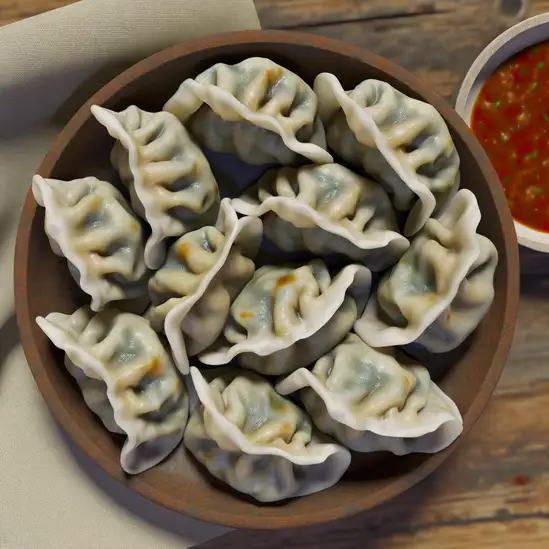



If you ever find yourself dreaming of a place where time slows down and nature wraps you in a gentle embrace,Punākha in Bhutan is exactly that kind of sanctuary. Nestled between lush green valleys and the confluence of two rivers,the air here feels fresher,almost scented with pine and wildflowers. Walking through Punākha,you’ll hear the soft murmur of water blending with the distant chants from ancient monasteries perched on hillsides. It’s a place where the rhythm of life feels deeply connected to the land and the seasons. What really struck me about Punākha was its warmth—not just the mild climate,but the genuine kindness of the people. The town pulses with a quiet energy,especially around the Punakha Dzong,a stunning fortress that looks like it’s been plucked from a fairy tale. Its intricate woodwork and golden roofs shimmer in the sunlight,and inside,the scent of incense and the flicker of butter lamps create a peaceful,almost sacred atmosphere. You can almost feel the history whispering through the walls. Beyond the Dzong,the valley opens up to rice paddies that stretch like emerald carpets,and the occasional flutter of prayer flags adds splashes of color against the blue sky. Sitting down to a meal here,you’ll taste the earthy warmth of ema datshi (chili cheese stew),a comforting reminder of Bhutan’s rich culinary traditions. Punākha isn’t just a place to visit—it’s a place to feel,to breathe,and to slow down in a way that stays with you long after you leave.
The information on this page is currently being reviewed by Tripkliq and should be used as a guide only
Eng word: Hello
Eng pronunciation: Tashi Delek
Local language: བཀྲིས་བདེ་ལེགས།
Eng word: Goodbye
Eng pronunciation: Ga-ler Pheb
Local language: ག་ལེར་ཕེབས།
Eng word: Thank you
Eng pronunciation: Thuk-je Che
Local language: ཐུགས་རྗེ་ཆེ།
Eng word: How much
Eng pronunciation: Ga-tsa
Local language: ག་ཚད།
Eng word: Toilet
Eng pronunciation: Sang-choe
Local language: གསང་སྤྱོད།
Eng word: Help me
Eng pronunciation: Nga-la Rog Nang
Local language: ང་ལ་རོགས་གནང་།
Eng word: Yes
Eng pronunciation: Ey
Local language: ཨེ།
Eng word: No
Eng pronunciation: Min
Local language: མིན།
Eng word: Excuse me
Eng pronunciation: Nga-lu Go-kho Yoe
Local language: ང་ལུ་དགོས་མཁོ་ཡོད།
Punākha served as the capital of Bhutan from 1637 to 1907 and remains an important historical and cultural center of the country.
The Punakha Dzong, also known as the 'Palace of Great Happiness,' was built in 1637 by Zhabdrung Ngawang Namgyal and is one of the most iconic and beautiful dzongs in Bhutan.
The first National Assembly of Bhutan was convened in Punakha Dzong in 1953, marking a significant step in the country's political history.
The Punakha Dzong houses the sacred relic of the Rangjung Kharsapani, a self-created image of Avalokiteshvara, which is deeply revered by Bhutanese Buddhists.
In 1907, the coronation of Bhutan's first king, Ugyen Wangchuck, took place in Punakha Dzong, marking the establishment of the Wangchuck dynasty.
Punākha serves as the winter residence of the Je Khenpo, the Chief Abbot of Bhutan, due to its relatively mild climate compared to other regions.
In 1994, a glacial lake outburst flood caused significant damage to the Punakha Dzong. However, the dzong was meticulously restored, showcasing Bhutan's commitment to preserving its heritage.
Located near Punākha, Chimi Lhakhang is a 15th-century temple dedicated to Lama Drukpa Kunley, also known as the 'Divine Madman.' It is a popular pilgrimage site for couples seeking blessings for fertility.
The Punakha Suspension Bridge, one of the longest suspension bridges in Bhutan, connects the villages surrounding Punakha Dzong and offers stunning views of the Pho Chhu and Mo Chhu rivers.
In Punākha, the most common Power Adaptor is Type D, Type G.



Steamed or fried dumplings filled with meat or vegetables, popular as a snack or appetizer.

A flavorful chicken curry made with a mix of spices, chilies, and sometimes served with rice.

A spicy pork dish cooked with radishes and chilies, known for its rich flavor and hearty ingredients.

A traditional Bhutanese dish made with green chilies and cheese, often considered the national dish of Bhutan.

A creamy potato and cheese dish, similar to Ema Datshi but featuring potatoes instead of chilies.

Dried beef cooked with cheese and chilies, offering a unique taste that reflects Bhutanese culinary traditions.

A staple in Bhutanese cuisine, this nutty-flavored rice is often served alongside various curries and dishes.
Imagine stepping into a place where the air hums with the gentle rhythm of waves lapping against sun-warmed shores,and the scent of salty sea mingles with fragrant street food stalls. That’s Phuket for you—a vibrant island that feels alive in every sense. It’s not just the stunning beaches that grab you,but the way the island pulses with a laid-back energy,where colorful markets buzz with chatter and the aroma of grilled seafood fills the air. Walking through the old town,you’ll find charming Sino-Portuguese buildings painted in pastel hues,their shutters creaking softly in the tropical breeze,while tuk-tuks zip by,adding a playful soundtrack to your explorations.
Phuket’s character is a beautiful blend of tradition and liveliness. Temples with golden spires peek out from lush greenery,inviting quiet moments of reflection,while nearby,night markets burst with life—vendors calling out,sizzling woks,and the sweet tang of mango sticky rice tempting your taste buds. The island’s culture is warm and welcoming,with locals who smile easily and share stories over cups of strong Thai coffee or fresh coconut water.
What makes Phuket truly special is how it wraps you in its embrace—whether you’re watching a fiery sunset from a cliffside bar,diving into crystal-clear waters teeming with vibrant marine life,or simply savoring the spicy kick of a freshly made curry. It’s a place that invites you to slow down,soak in the colors,sounds,and flavors,and leave with a heart full of unforgettable moments.
Malé,the capital of the Maldives,is the gateway to the country's idyllic islands with crystal-clear waters,overwater villas,and unparalleled marine life. A dream destination for beach and island enthusiasts.
ExploreIf you step into Colombo District,you immediately feel the pulse of a city that’s both vibrant and laid-back,where old-world charm meets modern hustle. Imagine walking along bustling streets lined with colonial-era buildings,their faded facades telling stories of a rich past,while sleek glass towers rise nearby,reflecting the tropical sun. The air carries a mix of scents—spices from street food stalls,salty sea breeze from the nearby coast,and the faint aroma of jasmine from roadside vendors. It’s a place where the sounds of honking tuk-tuks blend with the call to prayer and the laughter of children playing in small parks.
Colombo’s character is a beautiful mosaic of cultures. You’ll find Buddhist temples nestled beside mosques and churches,and markets where Tamil,Sinhalese,and Muslim communities come together in a colorful dance of languages and traditions. The city’s food scene is a feast for the senses—imagine biting into a crispy hopper drizzled with coconut sambol or sipping on a strong,sweet Ceylon tea while watching the sunset over Galle Face Green,where locals fly kites and families gather to unwind.
What makes Colombo truly special is its warmth. Despite the city’s fast pace,there’s a genuine friendliness in the smiles of shopkeepers and the inviting chatter in cafés. It’s a place where you can lose yourself in vibrant street art one moment and find quiet reflection in a serene temple garden the next. Colombo isn’t just a destination; it’s an experience that stays with you long after you leave.
Kochi,located in Kerala,is known for its serene backwaters,nearby islands,and rich cultural heritage. It's a great destination for those seeking a blend of relaxation and history.
ExploreIf you’re dreaming of a place where nature’s beauty feels like it’s wrapped around you like a warm hug,Langkawi is that kind of magic. The moment you step off the ferry or plane,there’s this gentle tropical breeze carrying the scent of salt and frangipani,instantly calming your mind. The island hums with a laid-back energy—no rush,just the soft rustle of palm leaves and the distant call of exotic birds. It’s the kind of place where time slows down,inviting you to soak in every vibrant detail.
Langkawi’s charm lies in its wild,lush landscapes meeting the turquoise sea. Imagine hiking through dense rainforests where sunlight filters through the canopy,dappling the forest floor,or standing on the Sky Bridge,suspended high above the treetops,with panoramic views that steal your breath away. The beaches aren’t just pretty—they’re alive with the sound of gentle waves lapping against powdery white sand,and the taste of fresh seafood grilled right on the beach,bursting with smoky,spicy flavors.
What really makes Langkawi special is its blend of cultures and stories. You’ll find local markets buzzing with friendly vendors offering tropical fruits and handmade crafts,while the island’s legends and history whisper through ancient temples and mangrove forests. It’s a place where you can lose yourself in nature,savor authentic Malay flavors,and feel the genuine warmth of the people. Trust me,Langkawi isn’t just a destination—it’s a feeling you’ll want to carry with you long after you leave.
Imagine stepping into a city where sleek skyscrapers meet lush greenery,and every corner hums with a vibrant energy that’s both modern and deeply rooted in tradition. That’s Singapore for you—a place where the air carries the fragrant mix of blooming orchids and sizzling street food,and the streets buzz with a blend of languages and laughter. Walking through neighborhoods like Chinatown or Little India,you’ll catch the rich aromas of spices mingling with the sweet scent of tropical fruits,inviting you to explore further.
What’s truly captivating about Singapore is how effortlessly it balances the fast-paced pulse of a global hub with pockets of serene beauty. You can be wandering through the futuristic Gardens by the Bay one moment,marveling at the towering Supertrees glowing softly at dusk,and the next,find yourself savoring a bowl of laksa or chili crab at a bustling hawker center,surrounded by locals chatting animatedly. The city’s character shines through its people—warm,diverse,and proud of their heritage,yet always welcoming.
There’s a rhythm here that’s both energizing and comforting. Whether you’re cycling along the waterfront,catching a sunset over Marina Bay Sands,or simply sipping kopi in a cozy café,Singapore invites you to slow down and soak in its unique blend of cultures,flavors,and sights. It’s a city that surprises you with its layers,making every visit feel like a new discovery.
Scammers may pose as monks or representatives of local charities, asking tourists for donations that do not go to legitimate causes.
Tourists may be sold mass-produced or imported items as 'authentic Bhutanese handicrafts' at inflated prices.
Some unlicensed tour operators may offer overpriced packages to tourists, claiming exclusive access to certain attractions or experiences in Punākha.
Some taxi drivers may overcharge tourists by not using meters or taking longer routes to destinations.
Unlicensed guides may approach tourists, offering cheaper services but providing inaccurate or misleading information about Punākha's history and culture.
The use, possession, and trafficking of drugs are strictly illegal in Bhutan, including Punakha. Bhutan has a zero-tolerance policy toward drugs, and violations can result in severe penalties, including imprisonment. Tourists should avoid carrying or using any illegal substances during their visit.
Smoking is heavily regulated in Bhutan, including Punakha. Bhutan was the first country in the world to ban the sale of tobacco products under the Tobacco Control Act of 2010. Tourists are allowed to bring limited quantities of tobacco products for personal use, but they must declare them at customs and pay a high import duty. Smoking in public places is prohibited, and violators may face fines.
Vaping is treated similarly to smoking in Bhutan and is subject to the same strict regulations. The import, sale, and use of e-cigarettes and vaping devices are restricted. Tourists bringing vaping devices must declare them at customs and pay applicable duties. Public vaping is prohibited, and violators may face penalties.
What are other people saying about Punākha?
Recent Social posts about Punākha
There is nothing to show you for now.